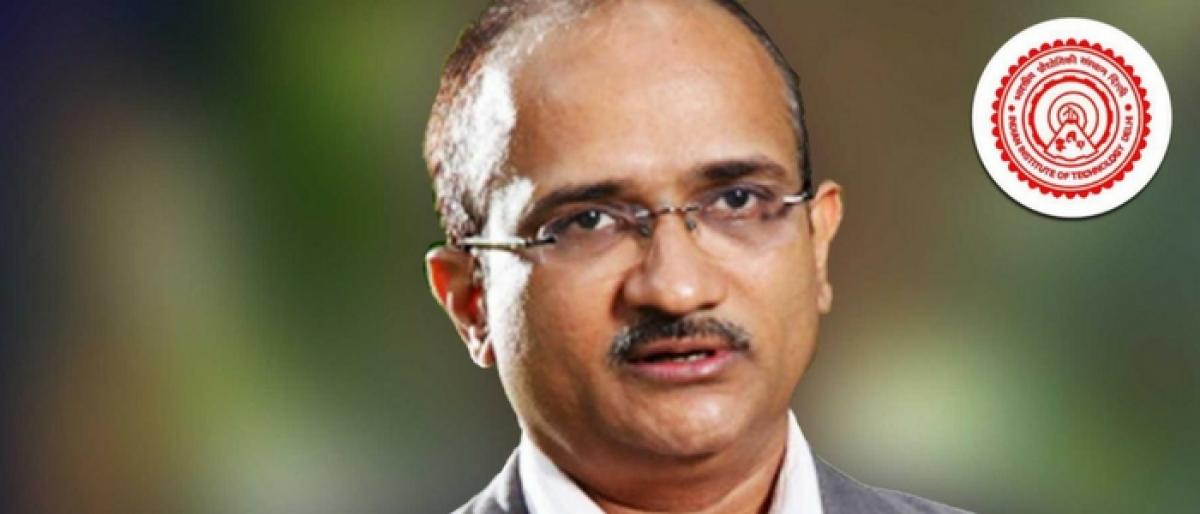Live
- ‘We can’t take things for granted’: Jayasuriya on balancing formats and Sri Lanka’s path to WTC final
- Prakash Ambedkar ready to 'power' the winner in Maha polls - Mahayuti or MVA
- BJP plans campaign against Cong govt
- Be lifelines to public & render best, cops told
- Siri 2.0: Apple's Advanced AI Assistant to Be Released in 2026
- Senegal ruling party wins parliamentary majority: Provisional results
- BJP flags plight of primary school
- Sensex surges 855 pts despite geo-political tensions, PSU bank stocks shine
- ED likely to question some Dubai-based Indians in Bengal ration scam case
- Minor quake hits Manipur's Bishnupur district
Just In

The Indian Institute of Technology-Delhi (IIT-Delhi), which is now ranked among the top 200 universities in the latest QS World University Rankings, can well be among the top 50 if it improves on parametres such as \"perception\", \"international faculty\" and \"international students\", according to its Director V. Ramgopal Rao.
New Delhi: The Indian Institute of Technology-Delhi (IIT-Delhi), which is now ranked among the top 200 universities in the latest QS World University Rankings, can well be among the top 50 if it improves on parametres such as "perception", "international faculty" and "international students", according to its Director V. Ramgopal Rao.
Rao said that Indian universities lose out on marks on the perception count. Academics and employers consulted by the ranking firms do not perceive Indian institutes to be "research intensive", even though their research papers are published by reputed journals, he said.
"We lose marks on account of perception terribly. The Western world does not see our institutes as research hubs. They still think we are mainly involved in churning out undergraduates. But, in reality, at IIT-Delhi, we have more post-graduates than undergraduates. But how many of those in the West think of us as a research institute," Rao asked.
He said Indian universities also need to improve their faculty-to-student ratio, the number of international students and the number of international faculty to improve rankings."Being a Government of India institute, we cannot offer scholarships to international students. For example, if a foreigner gets enrolled in a Masters programme, he will not get the fellowship to which an Indian student would be entitled. These are MHRD (Ministry of Human Resource Development) restrictions," Rao said.
He also said that IITs cannot hire foreign faculty on a permanent basis."The current system allows us to hire them on contractual terms, but these teachers are not eligible for the research grants given by the Department of Science and Technology (DST), which is our primary funding agency," he said.
Rao said his institute had looked into reasons for Indian universities not being among the top 50 and noted that moving up is not a difficult task."Here, for every faculty member there are five Ph.D students. Our faculty to Ph.D students ratio compares very favourably to American universities. Our research output also compares equally favourably to any US university in the top 50," he said.
"We are in close touch with the MHRD. Under the Vishwajeet Programme, we have identified areas where we are lacking and are seeking to address them," he added.
Rao said Joint Entrance Examination (JEE) has been held abroad to attract foreign students to IITs. "But funding remains a big issue, with IITs getting as little as one-tenth of what any American university gets," he said.
IIT-Delhi has been ranked 172nd compared to last year's 185th ranking in the latest QS rankings. The new entrant in the top-200 club is IIT-Bombay which is ranked 179th, up from 219th last year.
However, the Indian Institute of Sciences (IISc) Bangalore has slipped to 190the position from last year's 152nd. It was ranked 147th the year before.
Rao said a study done at his institute into factors behind rankings is the reason for the slight improvement in its standing in the QS rankings this year.
QS ranks institutions on six counts: Academic Reputation, Employer Reputation, Faculty/Student Ratio, Citation Per Faculty, International faculty Ratio and International Student Ratio.
Academic Reputation and Employer Reputation are counted as factors that determine "perception" of an institute.

© 2024 Hyderabad Media House Limited/The Hans India. All rights reserved. Powered by hocalwire.com







